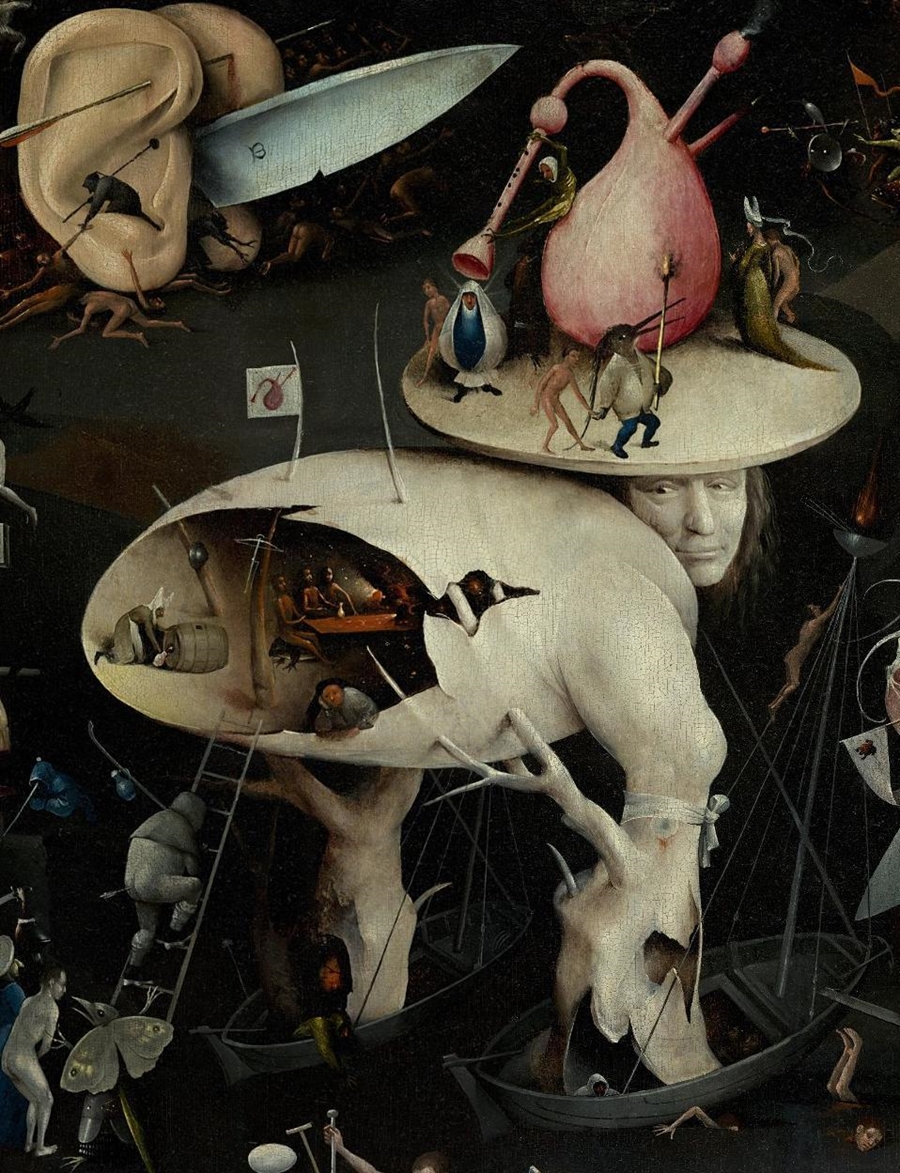A diabolical bird on a potty chair, eating (and excreting) the damned … a group of lost souls crushed by a pair of giant ears with a phallic knife wedged between them … the enigmatic "Tree Man" — the artist himself? — whose body cavity hosts a tavern. Hieronymus Bosch's hallucinogenic vision of Hell, famously depicted on the right panel of his masterpiece triptych, The Garden of Earthly Delights, has intrigued and confounded scholars since it was first produced in the late 15th century or early 16th century, almost certainly for an aristocratic client rather than the Church. (Take an interactive tour of Bosch's Garden of Earthly Delights.)
Lynn Jacobs, distinguished professor of art history in the School of Art at the J. William Fulbright College of Arts and Sciences, will shed new light on this nightmarish scene in her Honors College Mic lecture, "Hieronymus Bosch and the Vision of Hell," at 5:15 p.m. Thursday, Oct. 4, in Gearhart Hall Auditorium (GEAR 26).
Jacobs has been fascinated with Bosch since first seeing his paintings in an undergraduate course on Northern Renaissance art. She has researched Bosch's work, off and on, since 1996, when she spent a year at Cambridge University supported by funding from Fulbright College.
"I went over with the idea that I would solve the Garden of Earthly Delights, and eventually decided that I would not be able to unravel this weirdness," Jacobs recalled. Instead, she delved into the painting's format, eventually producing Opening Doors: The Early Netherlandish Triptych Reinterpreted (Penn State Press, 2012), lauded as the first comprehensive study of the emergence and evolution of these "paintings with doors."
In 2016, upon the 500th anniversary of Bosch's death, Jacobs attended a conference on Bosch in his hometown, 's-Hertogenbosch, and had the opportunity to attend a private, early morning viewing of a major exhibition of his work with other scholars. That led her back to Bosch, and a reconsideration of an odd iconographic element that shows up prominently in his diabolical vision of hell — a ladder.
"The ladder was used as a symbol of spiritual ascent at the time — why is it showing up in hell?" she mused. "This ended up being really exciting. By looking at this one thing, you get a much better handle on Bosch's strategies of picture making."
Come to the Honors College Mic lecture to learn more about Bosch's ladders, his life and his surreal take on Earth's creation, the Garden of Eden and the punishment of the damned.
The Honors College Mic series showcases top faculty on campus with expertise on fascinating topics. Overall, these lectures foster intellectual conversation at the University of Arkansas through shared dialog between lecturer and student, faculty and staff, and the wider populace.
Topics
Contacts
Kendall Curlee, director of communications
Honors College
479-575-2024,
